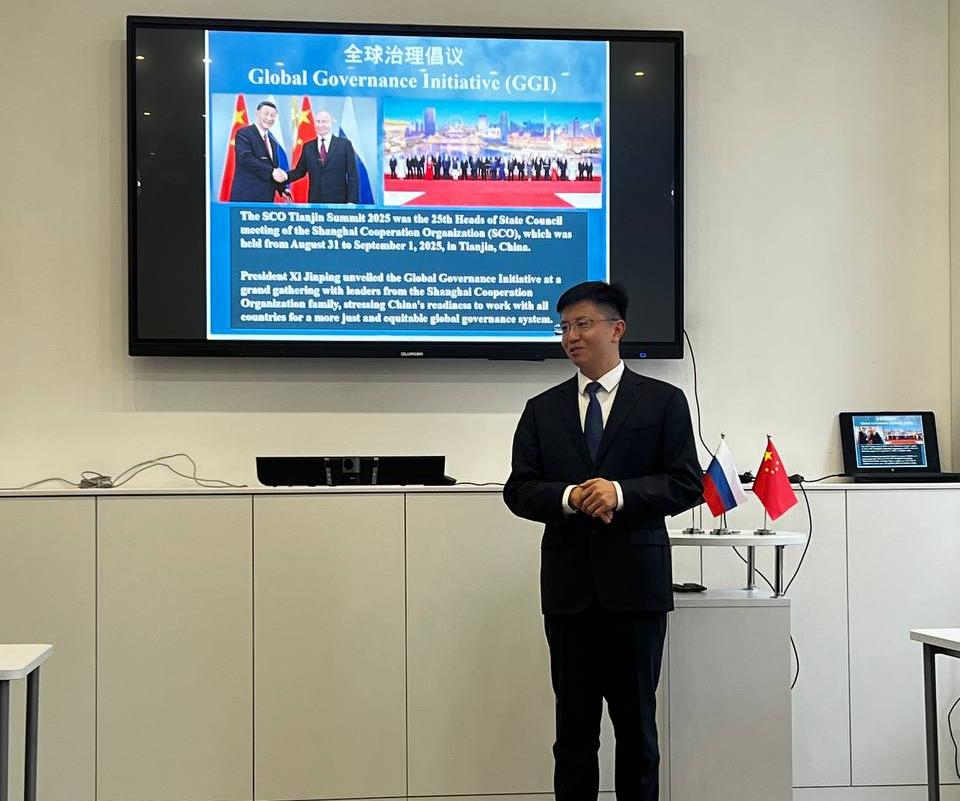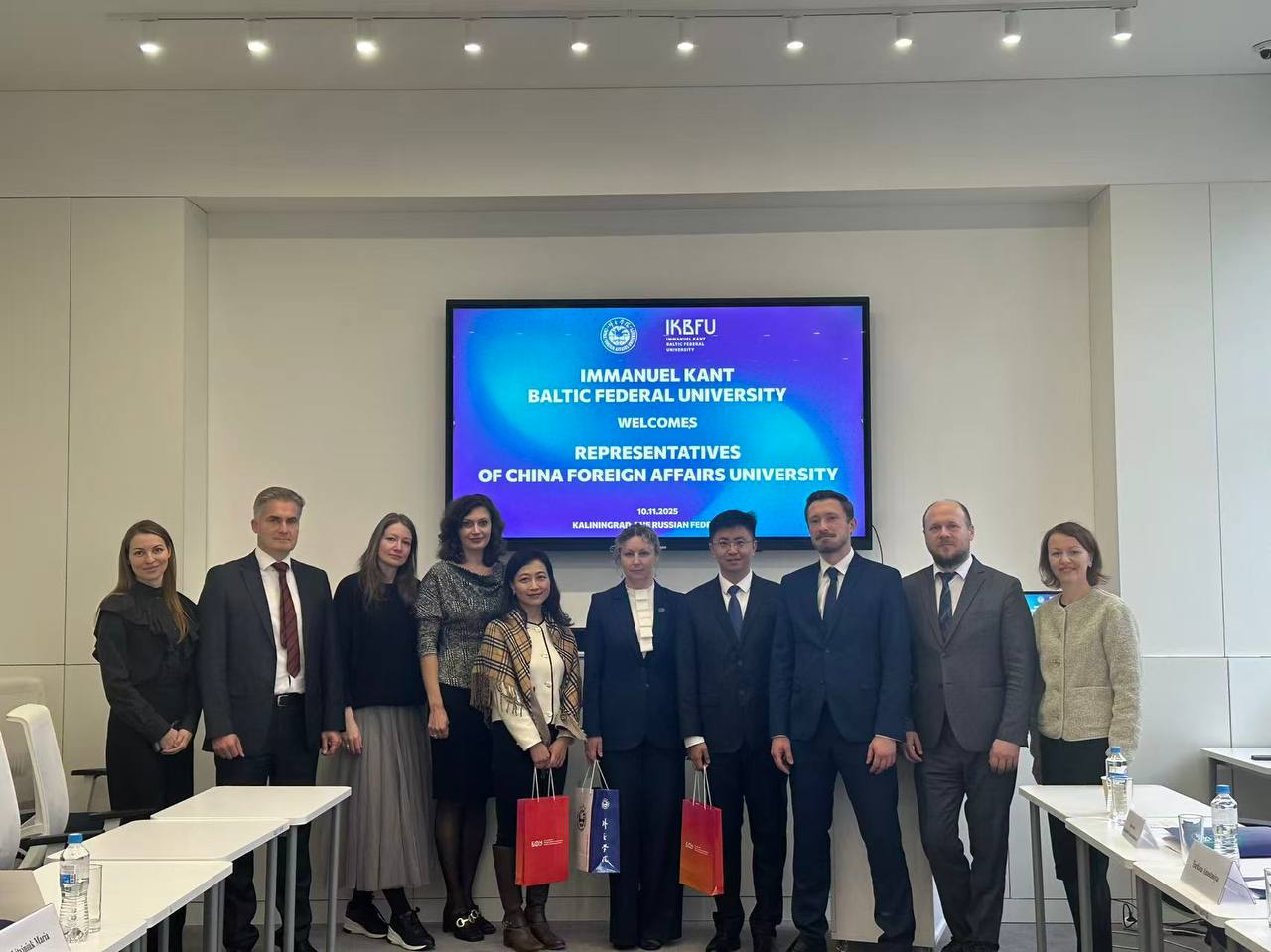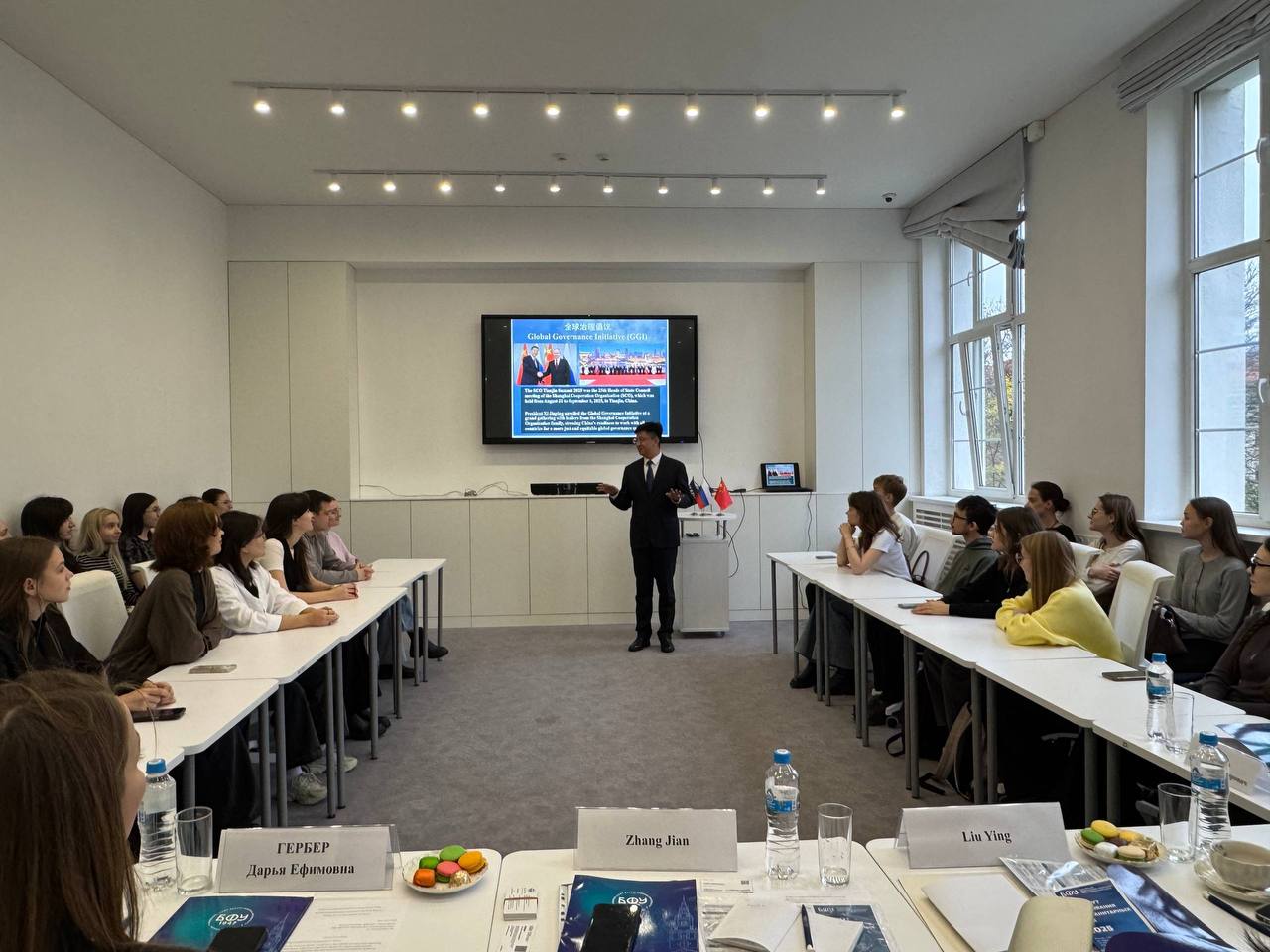
On November 10, a delegation from the China Foreign Affairs University — the country’s leading institution often referred to as “the cradle of Chinese diplomats” — visited Immanuel Kant Baltic Federal University. The meeting became a landmark step in advancing Russian–Chinese academic cooperation and concluded with the ceremonial handover to IKBFU of the newly signed cooperation agreement.
The visit of the Chinese delegation, led by Professor Liu Ying, Director of the Center for Russian and Eurasian Studies, and Professor Zhang Jian, Deputy Director of the Center, served as a return event following the working trip to Beijing in October by IKBFU representatives — Daria Gerber, Director of the International Office, and Maria Litvinyuk, Head of the Center for Intercultural Communication with Asia-Pacific Countries.
During the negotiations, representatives of the two universities discussed concrete steps to expand academic exchanges for students and faculty, to organize interdisciplinary vacation schools, and to launch a joint online educational platform. Special attention was devoted to collaborative research in international relations, law, oriental studies, and Russian studies.
An important part of the visit was the meeting of Chinese diplomats with international students and Sinologists from the IKBFU. The guests spoke about the importance of strengthening friendship and cooperation between Russia and China, as well as about the Global Governance Initiative proposed by President Xi Jinping. They emphasized that these initiatives — aimed at building a more just and multipolar world — are supported by President Vladimir Putin. For the students, it was a unique opportunity to hear firsthand how modern international relations are viewed by representatives of China’s leading diplomatic school.

| Anna Budarina, Head of IKBFU’s Institute of Education and Humanities, highlighted the significance of the agreement: |
| The development of cooperation with the China Foreign Affairs University opens up possibilities for joint research, summer schools, internships and academic exchanges, co-authored scientific publications, and international events in the fields of educational policy, comparative, global and regional studies, international relations, and intercultural communication. |
| On behalf of the Government of the Kaliningrad Region, I welcome the delegation of the China Foreign Affairs University to Kaliningrad. Our region is actively developing economic relations with the PRC, and, undoubtedly, educational cooperation on the eve of the upcoming Russia–China Cross Year will give an additional boost to our contacts, |
| noted Alexander Kalkuta. |
| Tatiana Ezhova, Director of the Higher School of Law: |
| For the Higher School of Law, this partnership presents new avenues in the field of comparative legal studies. We look forward to joint research projects, roundtable discussions on relevant topics, guest lectures, and, of course, the inclusion of our students in academic mobility programs — all of which will help train highly qualified lawyers capable of working within the legal frameworks of both countries. |
| Evgeny Kremnev, Head of the Scientific and Methodological Association for Oriental Studies: |
| The signing of the agreement between our universities represents a major contribution to the development of interregional Russian–Chinese relations, and the successful visit of our Chinese colleagues marks one of the key outcomes of the Russia–China Years of Culture. |

| Maria Litvinyuk, Head of the Center for Intercultural Communication with Asia-Pacific Countries, emphasized: |
| This visit is a logical continuation of our October trip to Beijing and the practical implementation of the agreements reached there. For our Center, this is, above all, a step up to a new level: we have agreed on specific measures to organize language internships and collaborative activities that will enable our students and researchers to gain a deeper understanding not only of the language, but also of contemporary political and social processes in the Asia-Pacific region. |
| Today, China is one of the world leaders in developing advanced digital educational solutions, therefore the meeting with our colleagues is of particular scholarly interest to me as a postgraduate student in the field of immersive learning technologies, |
| notes Diana Vakhanova, postgraduate student at the Higher School of Education and Psychology. |
| Cooperation with partner universities strengthens Russian-Chinese relations and allows the development, reinforcement, and support of international ties. This is an opportunity for students to gain invaluable international internship experience, acquire new language skills, and immerse themselves in the culture of the language they study, |
| added Margarita Shilina, a 5th-year student of the “Teacher Education” program with specializations in “English Language” and “Chinese Language”. |
User profile for student
User profile for student
I give consent to the processing of the personal data provided, with Personal Data Processing Policy acquainted
Confirm consent